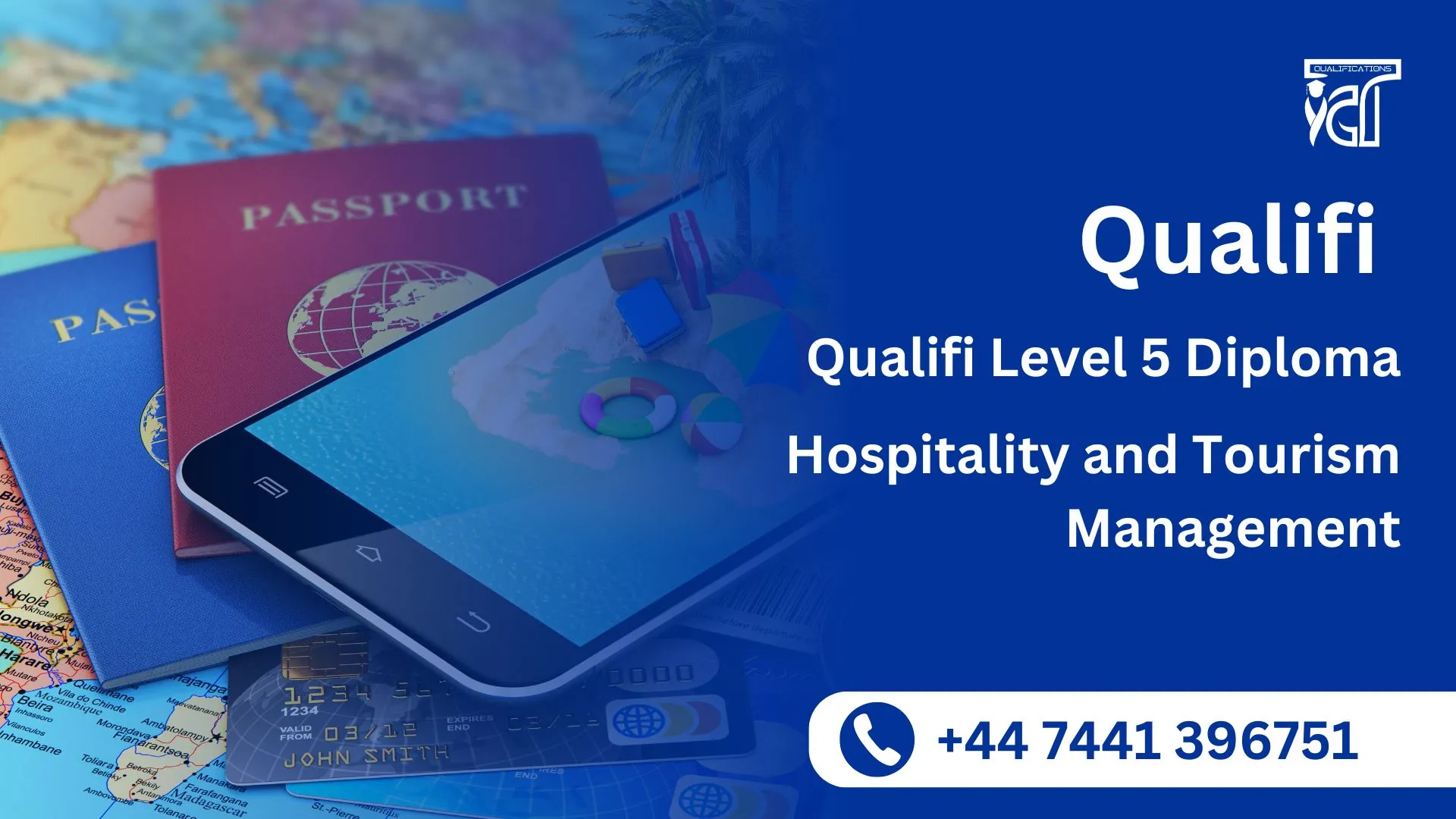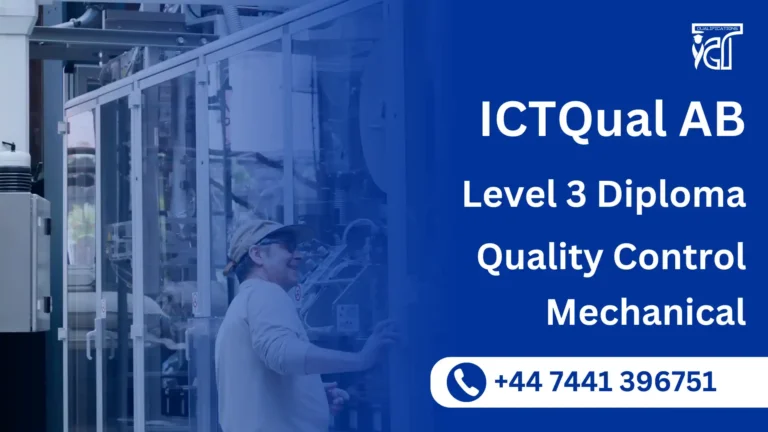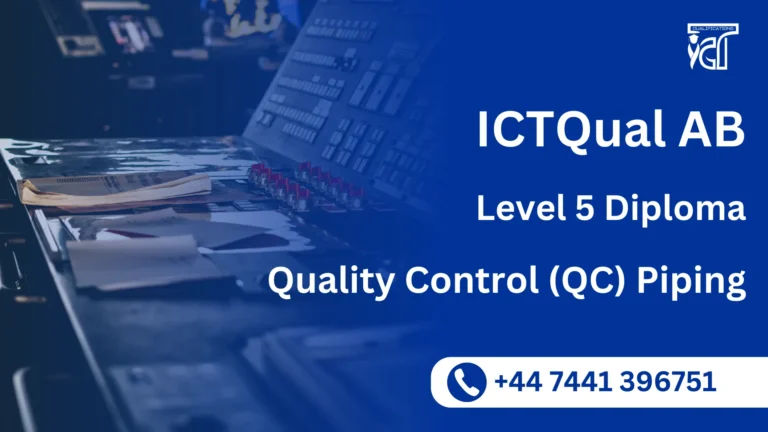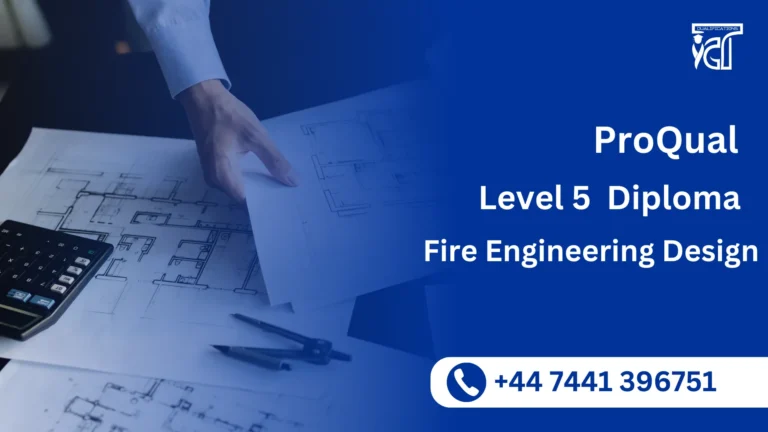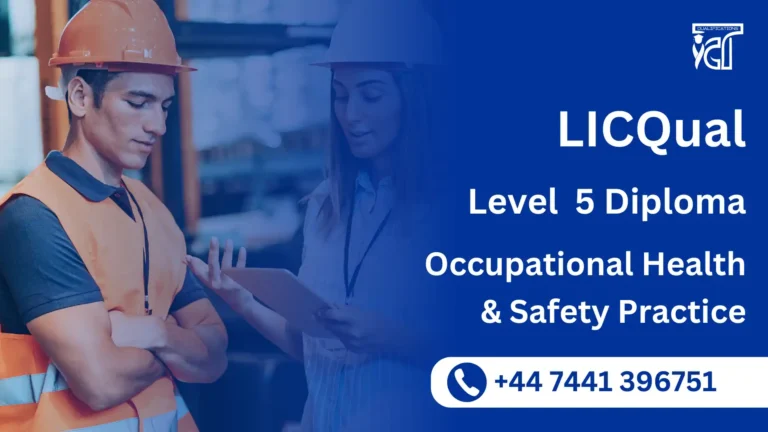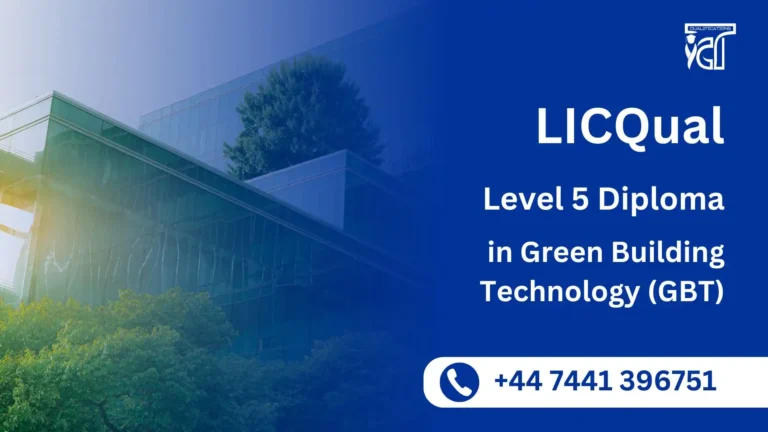The hospitality and tourism industry is one of the fastest-growing sectors globally, offering exciting career opportunities in hotel management, travel, events, and customer service. The Qualifi Level 5 Diploma in Hospitality and Tourism Management is designed to equip learners with the knowledge and practical skills needed to excel in this dynamic field. This Ofqual-regulated qualification is entirely assignment-based, providing a flexible learning approach for those looking to advance their careers.
This diploma is ideal for individuals aiming to enhance their expertise in hospitality and tourism management. The course covers key business and management principles tailored to the industry, ensuring learners develop a strong foundation in leadership, customer service, financial management, and marketing. Whether you are already working in the sector or planning a career transition, this qualification provides the essential skills to thrive in various hospitality and tourism roles.
Unlike exam-based courses, this diploma is entirely assignment-based, allowing learners to apply theoretical knowledge to real-world business scenarios. This approach enhances problem-solving abilities and ensures a practical understanding of industry challenges.
The Qualifi Level 5 Diploma in Hospitality and Tourism Management is a valuable qualification for individuals looking to advance their careers in this thriving industry. With a strong focus on business management, customer relations, and financial planning, this course prepares learners for leadership roles in hospitality and tourism. Whether you are seeking career growth or further academic progression, this diploma provides a flexible and recognized pathway to success.
The Qualifi Level 5 Diploma in Hospitality and Tourism Management qualification consists of 4 mandatory units for Credit Equivalency 120 for the completed qualification.
| Sr# | Unit Title | Credits | GLH |
| 1 | Tourism Destination Management | 30 | 120 |
| 2 | Entrepreneurship in Tourism and Hospitality Management | 30 | 120 |
| 3 | Cultural Tourism Management | 30 | 120 |
| 4 | Research Project | 30 | 120 |
GLH (Guided Learning Hours) and TQT (Total Qualification Time) are terms commonly used in vocational qualifications to help define the amount of time a learner is expected to spend on their studies.
1. GLH (Guided Learning Hours)
GLH refers to the number of hours a learner spends being directly taught, supervised, or supported during their course. This includes the time spent in activities such as:
- Classroom instruction
- Practical workshops
- One-on-one tutoring or mentoring sessions
- Online learning sessions with tutor support
In other words, GLH represents the time that learners are actively engaged with their instructors or learning activities.
2. TQT (Total Qualification Time)
TQT represents the total amount of time a learner is expected to invest in completing a qualification, including:
- GLH (Guided Learning Hours): Time spent on direct learning, as explained above.
- Self-Directed Learning: This includes time spent on independent study, research, assignment completion, preparation for exams, and any other work the learner does outside of direct teaching hours.
TQT is a broader measure that includes all the time required to achieve the qualification. It helps learners and employers understand the overall commitment required for the qualification.
Key Differences Between GLH and TQT:
- GLH focuses on direct learning with guidance or supervision.
- TQT includes GLH as well as independent study time and other learning-related activities.
Example:
If a qualification has a TQT of 600 hours and a GLH of 250 hours, it means the learner should spend 250 hours in direct learning (classroom, online, or tutor-led sessions) and 350 hours on independent study or research.
Learning Outcomes of Qualifi Level 5 Diploma in Hospitality and Tourism Management
Tourism Destination Management
- Understand the current trends that affect national and international tourist destinations.
- Examine the characteristics of tourist destinations and the relationship to their appeal.
- Evaluate the characteristics of tourist destinations and their impact on tourists and tourism
Entrepreneurship in Tourism and Hospitality Management
- Understand the skills and characteristics an entrepreneur needs in the travel and tourism industry.
- Understand the development of enterprises in the travel and tourism industry.
- Develop a business start-up plan for a niche market in the travel and tourism industry.
Cultural Tourism Management
- Evaluate the development and purpose of the heritage and cultural sector in the travel and tourism industry.
- Understand the roles and responsibilities of organisations in the heritage and cultural sector.
- Evaluate the role and methods of interpreting the visitor experience within the heritage and culture sector.
Research Project
- Develop a research proposal.
- Carry out a research project Considering the relevant aspects.
- Evaluate and present the outcomes of the research project
Course Benefits of the Qualifi Level 5 Diploma in Hospitality and Tourism Management
- Industry-Relevant Knowledge – Gain in-depth expertise in hospitality and tourism management, covering operations, marketing, finance, and customer service.
- Career Advancement – Enhance employability and open doors to managerial roles in hotels, travel agencies, event management, and tourism services.
- Practical Learning Approach – Develop hands-on skills through assignment-based assessments, ensuring real-world application.
- Flexible Study Options – No exams, allowing learners to balance studies with work and other commitments.
- Higher Education Progression – Provides a pathway to Level 6 qualifications or undergraduate degrees in hospitality, tourism, or business management.
- Global Recognition – An Ofqual-regulated qualification that is respected by employers and academic institutions worldwide.
- Enhanced Leadership Skills – Learn effective people management, strategic decision-making, and problem-solving to succeed in leadership roles.
- Ethical and Sustainable Tourism Practices – Understand responsible tourism management and sustainability principles in the industry.
Ideal Learner for the Qualifi Level 5 Diploma in Hospitality and Tourism Management
The ideal learner for the Qualifi Level 5 Diploma in Hospitality and Tourism Management is someone who is passionate about the hospitality and tourism industry and is looking to advance their career or gain the skills and knowledge necessary for managerial or leadership roles. Here are some key characteristics and attributes of an ideal learner for this program:
1. Career Aspirations
- Aspiring Managers: Individuals aiming to move into managerial or supervisory roles in the hospitality and tourism sector.
- Career Changers: Professionals from other industries looking to transition into hospitality and tourism management.
- Entrepreneurs: Those interested in starting their own business in the hospitality or tourism industry.
2. Educational Background
- Prior Qualifications: Learners may have completed a Level 4 qualification in hospitality, tourism, or a related field, or have equivalent work experience.
- Academic Interest: A strong interest in business management, customer service, and the operational aspects of hospitality and tourism.
3. Professional Experience
- Industry Experience: Some prior experience in the hospitality or tourism sector, even at an entry level, is beneficial.
- Skill Development: Learners should be eager to develop skills in areas such as strategic planning, marketing, financial management, and customer relationship management.
4. Personal Attributes
- Leadership Potential: A desire to take on leadership roles and manage teams effectively.
- Problem-Solving Skills: The ability to think critically and solve problems in a fast-paced environment.
- Communication Skills: Strong interpersonal and communication skills, essential for managing staff and interacting with customers.
- Adaptability: The ability to adapt to changing circumstances and handle the dynamic nature of the hospitality and tourism industry.
5. Learning Goals
- Skill Enhancement: A focus on gaining practical skills and knowledge that can be directly applied in the workplace.
- Career Advancement: A clear goal of advancing to higher-level positions within the industry.
- Global Perspective: An interest in understanding the global trends and challenges in hospitality and tourism.
6. Commitment to Learning
- Self-Motivation: A high level of self-motivation and the ability to manage time effectively, especially if the program is pursued part-time or online.
- Continuous Improvement: A commitment to lifelong learning and professional development.
7. Industry Awareness
- Market Knowledge: An understanding of the current trends, challenges, and opportunities in the hospitality and tourism sector.
- Customer Focus: A strong focus on delivering exceptional customer service and enhancing the customer experience.
8. Ethical and Professional Standards
- Ethical Awareness: A commitment to ethical practices and sustainability in the hospitality and tourism industry.
- Professionalism: A professional attitude and a commitment to maintaining high standards in all aspects of work.
9. Global Perspective
- Cultural Awareness: An appreciation for cultural diversity and the ability to work in a multicultural environment.
- International Outlook: An interest in working in or managing international hospitality and tourism operations.
10. Technical Proficiency
- Digital Literacy: Basic proficiency in using technology and digital tools relevant to the hospitality and tourism industry, such as property management systems, online booking platforms, and customer relationship management (CRM) software.
Conclusion:
The ideal learner for the Qualifi Level 5 Diploma in Hospitality and Tourism Management is someone who is motivated, career-focused, and eager to develop the skills and knowledge necessary to succeed in a managerial or leadership role within the hospitality and tourism industry. They should be committed to continuous learning, have a strong customer service orientation, and be prepared to adapt to the ever-changing demands of the industry.
Entry Requirements
Register Now
Qualification Process
Qualification Process for the Qualifi Level 5 Diploma in Hospitality and Tourism Management
- Self-Assessment:
Begin by evaluating your eligibility to ensure you meet the qualification requirements, including work experience, knowledge, and language proficiency. - Registration:
Complete your registration by submitting the required documents, including a scanned copy of a valid ID, and paying the registration fee. - Induction:
An assessor will conduct an induction to confirm your eligibility for the course and explain the evidence requirements. If you do not meet the criteria, your registration will be canceled, and the fee will be refunded. - Assignments & Evidence Submission:
Provide all assignments and the necessary evidence based on the assessment criteria outlined in the course. If you are unsure of the required evidence, consult with the assessor for guidance on the type and nature of evidence needed. - Feedback and Revision:
The assessor will review your submitted evidence and provide feedback. Evidence that meets the criteria will be marked as “Criteria Met,” while any gaps will be identified. You will be asked to revise and resubmit if needed. - Competence Evidence:
Submit final evidence demonstrating that all learning outcomes have been met. This evidence will be marked as “Criteria Met” by the assessor once it is satisfactory. - Internal Quality Assurance (IQA):
The Internal Quality Assurance Verifier (IQA) will review your evidence to ensure consistency, quality, and compliance with standards. - External Verification:
The IQA will submit your portfolio to Qualifi’s External Quality Assurance Verifiers (EQA) for final confirmation. The EQA may contact you directly to verify the authenticity of your evidence. - Certification:
Upon successful completion of all checks, Qualifi will issue your official certificate, confirming that you have attained the Qualifi Level 5 Diploma in Hospitality and Tourism Management.

